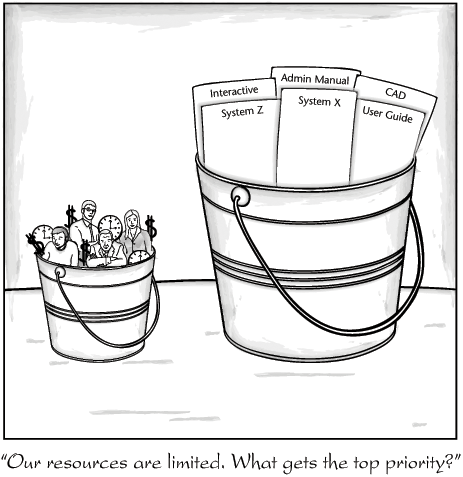Chapter 4. Managing an Information-Development Budget

In an empowered organization, people are free to make mistakes and equally free to fix them. Managers have side discretion in making decisions; as a result, they can obtain resources more quickly . . . without having to document [them] quite so elaborately. | ||
| --Jeremy Hope and Robin Fraser[1] | ||
One of the key characteristics that is researched in an Information Process Maturity (IPMM) assessment is budget. The more managers know about their budgets, the more likely they are to be at higher levels on the process maturity scale. In the IPMM assessment, I am interested in learning how an organization is funded and how well the managers understand the budgeting process in their companies. The questions in the IPMM survey focus on the degree of responsibility and control that the information-development manager has over the organization’s budget.
The questionnaire asks the following questions about the budget:
Do you have control over the budget for your information-development organization?
Do you prepare your budget estimates and proposals based on an estimated workload for the coming year?
Is your information-development budget controlled elsewhere in the organization?
Are you assigned a headcount (number of staff) but have no information about your organization’s budget?
Are you able to successfully request additions to the budget if the ...
Get Information Development: Managing Your Documentation Projects, Portfolio, and People now with the O’Reilly learning platform.
O’Reilly members experience books, live events, courses curated by job role, and more from O’Reilly and nearly 200 top publishers.

